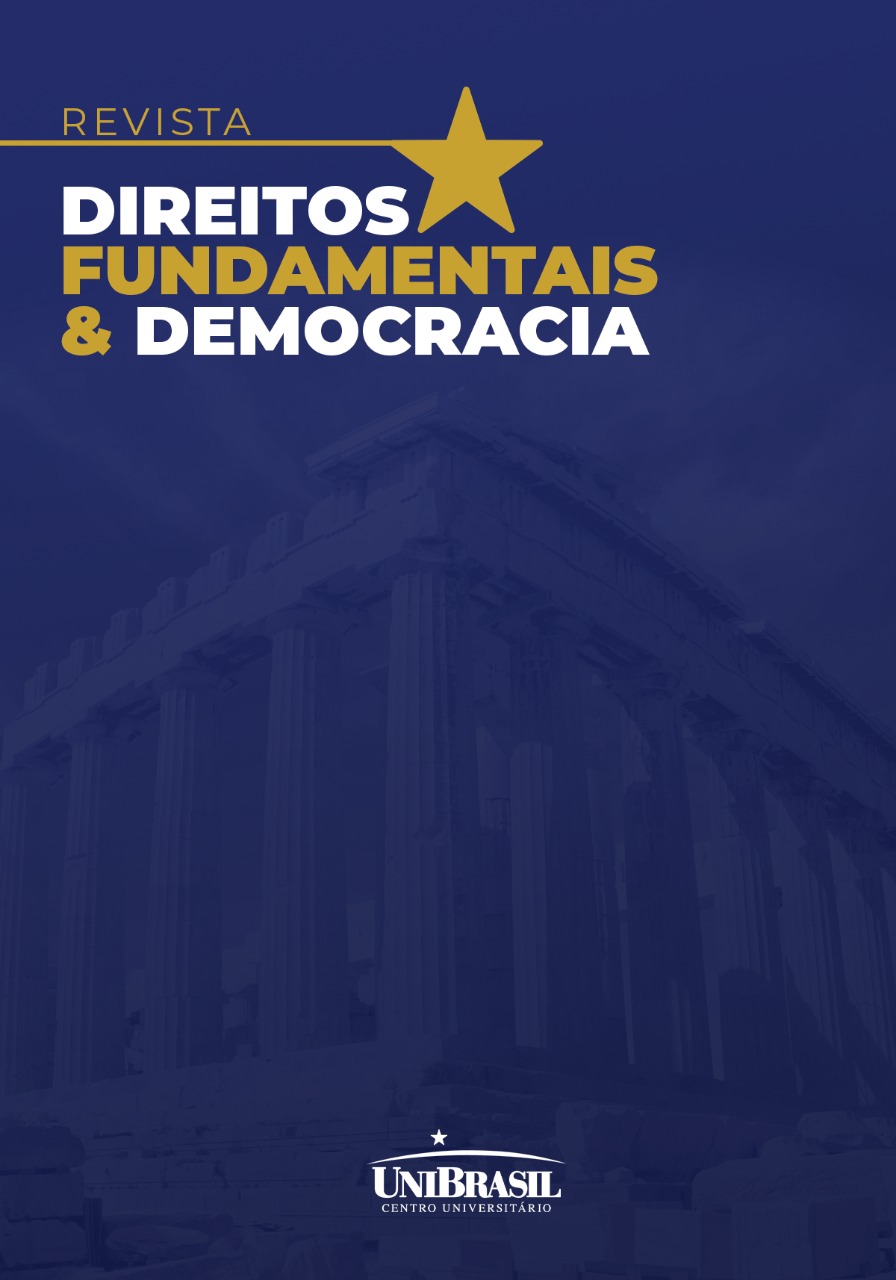THE CONFLICT-SENSITIVE APPROACH APPLIED TO THE MITIGATION OF ENVIRONMENTAL DEGRADATION ARISING FROM ARMED CONFLICTS
DOI:
https://doi.org/10.25192/ISSN.1982-0496.RDFD.V.29.II.2740Resumen
Teniendo en cuenta, por tanto, el empeoramiento y la agregación de fenómenos cada vez más complejos y simultáneos en las emergencias humanitarias a gran escala, este estudio comprenderá las interconexiones entre los elementos del conflicto, la asistencia humanitaria y la degradación ambiental. En este sentido, buscaremos presentar el enfoque sensible al conflicto como una herramienta analítica útil que puede contribuir en gran medida a abordar situaciones tan multifacéticas. El principal objetivo de esta investigación es comprender los impactos que provoca la combinación de la ocurrencia de conflictos armados y la ocurrencia de la crisis climática y ambiental en la vida de las poblaciones más vulnerables. Además, buscando mejorar el debate a través de soluciones duraderas y efectivas, esta propuesta conducirá a hipótesis que servirán tanto para posibles soluciones jurídicas como para el sector humanitario. En este sentido, será necesario comprender, en el siguiente orden: cómo afectan los conflictos armados al medio natural (I); cómo la crisis climática empeora la gravedad de los conflictos armados (II); y, finalmente, la comprensión del medio ambiente natural como una víctima desatendida del Derecho Internacional de los Conflictos Armados y su ámbito de protección, al mismo tiempo que puede ser utilizado como un arma de guerra eficaz cuando se trata particularmente de la realización de conflictos armados. hostilidades (III).
Descargas
Citas
AUSTIN, J. E. BRUCH, A. E. The environmental consequences of war: legal, economic, and scientific perspectives.Cambridge: Cambridge University Press, 2000.
BOUVIER, A. GRIGNON, J. QUINTIN, A. SASSÒLI, M. How does law protect in war?Geneva: ICRC, 2014. Disponível em: https://casebook.icrc.org/glossary/environment Acesso em: 14 de fevereiro de 2022.
CHRISTIANSEN, S. M. Climate Conflicts: a case of International Environmental and
Humanitarian Law. Springer International Publishing, 2016.
DAS, O. Environmental Protection, Security and Armed Conflict: a sustainable development perspective.Cheltenham, Northampton: Edward Elgar Publishing Limited, 2013.
GUERRA, S. O Direito Internacional das Catástrofes. 1 ed. Curitiba: Instituto Memória, 2021.
GUERRA, S. Curso de Direito Internacional Público. 14 ed. São Paulo: Saraiva Educação, 2022(a).
GUERRA, S. Curso de Direitos Humanos. 7 ed. São Paulo: Saraiva Educação, 2022(b).
HILHORST, D. VOORST, R. V. Humanitarian action in disaster and conflict settings: insights of an expert panel.The Hague: International Institute of Social Sciences (ISS), 2018.
INSTITUTE FOR ECONOMICS & PEACE. Ecological Threat Report 2021: understanding ecological threats, resilience, and peace. Sydney: IEP, 2021.
INTERNATIONAL COMMITTEE OF THE RED CROSS (ICRC). The Geneva Conventions of 12 August 1949. Geneva: ICRC, 1949.
INTERNATIONAL COMMITTEE OF THE RED CROSS (ICRC). Protocol Additional to the Geneva Conventions of 12 august 1949 and relating to the protection of victims of international armed conflicts (Protocol I), of 8 June 1977. Geneva: ICRC, 1977.
INTERNATIONAL COMMITTEE OF THE RED CROSS (ICRC). International Humanitarian Law and the challenges of contemporary armed conflicts recommitting to protection in armed conflict on the 70th anniversary of the Geneva Conventions. Geneva: ICRC, 2019.
INTERNATIONAL COMMITTEE OF THE RED CROSS (ICRC). Guidelines on the protection of the natural environment in armed conflict: rules and recommendations relating to the protection of the natural environment under international humanitarian law, with commentary. Geneva: ICRC, 2020 (a).
INTERNATIONAL COMMITTEE OF THE RED CROSS (ICRC). When rain turns to dust: understanding and responding to the combined impact of armed conflicts and the climate and environment crisis on people’s lives.Geneva: ICRC, 2020 (b).
INTERNATIONAL COMMITTEE OF THE RED CROSS. Customary IHL Database.Disponível: https://ihl-databases.icrc.org/customary-ihl/eng/docs/home Acesso em: 17 mai. 2021.
KOPPE, E. The Use of nuclear weapons and the Protection of the Environment during International Armed Conflict. Oxford, Portland, Oregon: Hart Publishing, 2008.
KUNREUTHER, H. C., MICHEL-KERJAN, E. O. At War with the Weather Managing Large-Scale Risks in a New Era of Catastrophes. Cambridge, London: The MIT Press, 2009.
LEE, J. R. Climate Change and Armed Conflict: Hot and Cold Wars. Routledge, 2009.
NETT, K. RÜTTINGER, L. Insurgency, Terrorism and Organised Crime in a Warming Climate: analysing the links between climate change and non-state armed groups. Berlin: Climate Diplomacy, 2016.
SASSÒLI, M. International Humanitarian Law: rules, controversies, and solutions to problems arising in warfare. Cheltenham: Edward Elgar Publishing Limited, 2019.
UNITED NATIONS. Protecting the Environment during Armed Conflict: an inventory and analysis of International Law.United Nations, 2010.
Descargas
Publicado
Cómo citar
Número
Sección
Licencia
Derechos de autor 2024 Sidney Guerra, Adria Saviano Fabricio da Silva

Esta obra está bajo una licencia internacional Creative Commons Atribución-NoComercial-CompartirIgual 4.0.
Os direitos autorais, dos artigos publicados na Revista, são do autor e da RDFD com os direitos de primeira publicação para a Revista. Em virtude de aparecerem nesta revista de acesso público, os artigos são de uso gratuito, com atribuições próprias, com aplicações educacionais e não comerciais, de acordo com o creative commons.




